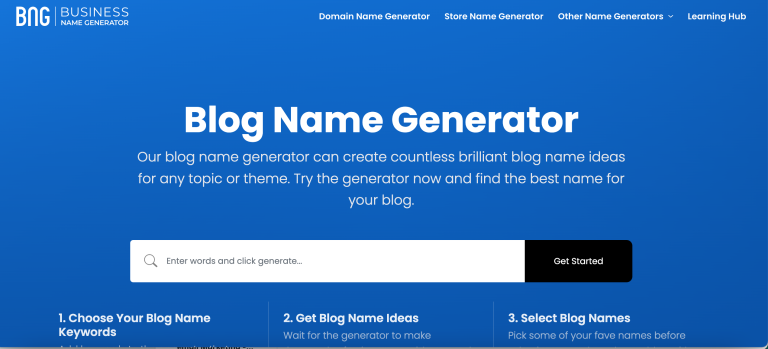How To Start A blog In 2023
Ultimate Beginner's Guide To Start Blog and Earn Money
Anyone can create a blog that makes money in under 1 hour.
In this Step By step-by-step guide, I will show you how to create a blog in under 1 hour with very basic computer skills.
This is the best way to start a blog and after this step by step guide, you can create the perfect blog in less than 1 hour.
I know starting a blog can seem to be a very overwhelming task but with this step-by-step guide, you would be able to create a blog in less than 1 hour.
So let’s dive into it without wasting any more time.

Why Should You Start A Blog?
There could be many reasons to start a blog. It could be to make money online, Passive Income, for your business or Passion. Whatever it is, a well-written blog could be very lucrative. It is not very difficult to write a perfect blog that people will love to read. You do not have to be a perfect copywriter to write a blog.
A Good blog can earn you a living and can add value to other people’s life.
What Is A Blog?
A Blog is well-researched and well-written content that provides educational information to the users. It could be on any topic/query.
A Blog allows you to share your content/story and make money
How To Start A blog In 7 Easy Steps. A Step By Step Guide
- Pick a Blog Name And Niche
- Get Your Blog Online (Web Hosting)
- Install WordPress
- Choose A Great Theme
- Write Your blog
- Promote your blog
- Make Money From Your Blog
Step 1 : Pick a Blog Name And Niche
Picking a blog name and niche could be a very tricky situation. A blog name should represent the niche/topic/ that you would be writing about. It could also be your own name.
To help you get ideas for your blog name,
Click Here To Generate Your Blog Name
Click on the above link, It will take you to the name generator, and Explore your ideas. Play around with keywords that you have in your mind and it will generate name ideas for you

How To Pick Your Blog Niche?
The foundation of a successful blog lies in choosing the right niche. Picking a Blog niche could be tricky. I would suggest treating your blog as a business from day one and focusing on high-demand and traffic Niches. Evergreen niches like Online Marketing, Cooking, Travel, Technology, and Health are always good.
Conduct thorough research to gauge the demand and competition within your chosen niche. Striking a balance between personal interest and market demand ensures sustained motivation and audience engagement.
Discover New, Relevant Blog Topics With This Free Keyword Tool.
Generating captivating blog topics is crucial for sustained engagement in content creation. Exploring niche-related forums and communities can be highly effective among the various strategies. By diving into discussions and identifying recurring questions or concerns, you can address user queries and position your blog as a reliable resource. This approach helps you find relevant topics and establishes your authority in your field.
Additionally, harness the power of burstiness by leveraging current trends and news. Timely content boosts SEO, ensures your blog remains relevant, and resonates with a broader audience. Remember, specificity is crucial; don’t just scratch the surface—delve deep into your chosen topic, providing valuable insights and solutions. Crafting magnetic headlines and utilizing SEO-friendly keywords further enhances discoverability, solidifying your blog as an authoritative voice in your niche.
To generate engaging blog topics, you need to be a mix of creative, trend-conscious, and dedicated to depth. Balancing the complexity and timeliness of your content can help you cut through the noise and attract loyal readers. So, in conclusion, navigating the intricate landscape of blog topic generation is all about finding the right balance.
Doing Market Research

Creating compelling blog topics is essential to maintaining user engagement and interest in content creation. You can use several strategies, but exploring forums and online communities related to your niche can be particularly effective. By actively participating in discussions and identifying recurring questions or concerns, you can craft blog posts that address user queries and position your blog as a trustworthy source of information. This approach helps you find relevant topics and establishes your authority and credibility in your field.
To increase the effectiveness of your blog, you can utilize current trends and news to your advantage. This is known as burstiness. By creating timely and relevant content, you can boost your blog’s SEO and make it resonate with a broader audience. However, it’s essential to be specific and not just scratch the surface of your chosen topic. You should provide valuable insights and solutions that delve deep into the subject matter. Additionally, crafting headlines that grab attention and using SEO-friendly keywords can help improve the discoverability of your blog. This will establish you as an authoritative voice in your niche.
Creating compelling blog topics requires creativity, awareness of trends, and a commitment to depth. Striking a balance between the intricacy and relevance of your content can help you stand out and cultivate a devoted readership. In summary, finding the perfect equilibrium is the key to navigating the complex terrain of blog topic generation.
Download my list of the top 100 most profitable niche ideas for your blog, completely free of charge.
I have compiled a list of 100 well-researched blog topic ideas you can choose from to start your blog. This list can save you much time and money you would otherwise spend on research. Each of these niches has a potential for profitability, so you can pick one of them and start your blog immediately.
Step 2 : Get Your Blog Online (Web Hosting)
Starting a blog in the digital age is an exciting journey, but choosing the right web hosting provider is a crucial first step. With so many options available, it can be overwhelming. But don’t worry, I am here to help you make sense of the web hosting landscape.
To get started, you need to understand your blog’s unique needs. Different hosting plans cater to various requirements, from shared hosting for beginners to dedicated servers for high-traffic sites. By assessing your blog’s scale and audience, you can make an informed decision that will ensure your blog’s success.
When choosing a web hosting provider, it’s essential to consider the burstiness factor. Look for a provider that guarantees high uptime and fast load times to improve user experience and boost your blog’s SEO ranking. To strengthen your online presence against potential challenges, dig into the specifics of bandwidth, storage, and security features.
Being specific is crucial when selecting the right web hosting plan: research customer reviews and testimonials to understand real-world experiences. A reliable hosting provider should offer robust customer support, ensuring help is readily available.
What Is Web Hosting

Web hosting, also known as website hosting or web hosting, refers to storing and maintaining website files and applications on a server by a web hosting provider. This enables its customers’ websites to be accessible on the internet.
To build a website, you need a domain name and a web hosting account. Purchasing a domain name only gives you the right to use that particular domain name for a specific period, usually one year. To store your website’s files, you need web hosting.

